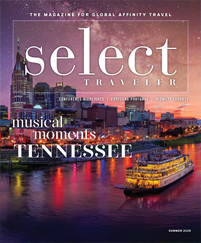Fast Facts about Dan Stypa
Dan Stypa is the Associate Director of Alumni Programs at Rice University in Houston.
Founded in 1912, Rice University is a private institution that is home to nearly 7,000 undergraduate and graduate students. The Traveling Owls educational travel program is available to the school’s 55,000 alumni members.
Born: Newton Falls, Ohio.
Education: B.A. in communications from Bowling Green State University, Ohio, and M.S. in educational administration from the University of Tennessee
Employment: Stypa worked at the University of South Florida until 2011, when he started his current position at Rice University.
Family: Stypa’s partner works as a cardiologist at the University of Texas Medical Branch in Galveston, Texas. They have two feisty yet adorable dogs named Frieda and Knightro.
Hobbies: Travel, cooking, shopping and reading.
Profile
Though Dan Stypa now plans trips as exotic as the Silk Road in Uzbekistan, when he took responsibility for the Traveling Owls program with Rice University in 2012, he had never been out of North America.
“Prior to Rice University, I was working with faculty programming,” said Stypa, associate director of alumni programs. “When this opportunity with Rice opened up, I was really excited about the travel aspect of the job. My only previous experience traveling internationally was to Canada. Once I came here, that certainly changed.”
Not only did Stypa eagerly sign on to lead Traveling Owls, but he was also tasked to assess the value of the program, which started in 1970. From the first day, Stypa worked to discover if Traveling Owls benefited Rice University enough to continue in its current form.
What he found caused the university to essentially double the program from about 15 trips a year to its current offering of 30 trips a year.
Digging In
To study the program’s impact, Stypa talked with key travelers, reviewed past trips and compared Traveling Owls with other institutions’ travel programs.
“I found that the travelers who were going on the trip really valued the educational enrichment of the trips,” said Stypa. “While these were, of course, vacations, they were taking these trips to learn in a much more immersive way about places all around the world.
“They were also taking the trips for the sense of community. I was pleasantly surprised that people kept in touch after the trips. It’s an experience that lasts much longer than when they are in a destination together.”
After Stypa felt confident the program had value in attaching people to Rice University, he decided the university could double its tours without diluting the program. He also placed emphasis on using faculty to customize educational experiences. Stypa further added a focus on fostering a sense of affinity amongst travelers for Rice University.
“No longer are you going on a trip and then you are done with Rice,” said Stypa. “Now, once the trip is over, you are receiving invitations for learning and volunteer opportunities. We’ve really been intentional about integrating the travel program with the overall life of Rice University.”
If the Chinese consulate gives a talk at Rice University, for example, Stypa invites all members who previously traveled with the program to China.









